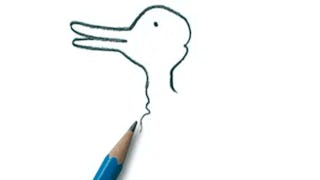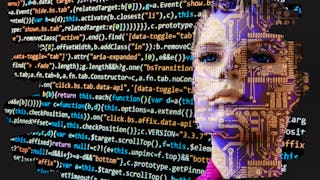In today’s digital world, we are constantly bombarded with information — some of it helpful, much of it misleading. This course explores how we, as digital epistemic subjects, can navigate complex online environments shaped by fake news, conspiracy theories, echo chambers, and shifting norms of trust and mistrust. You'll begin by examining the major epistemic challenges of the digital age, including the impact of online storage and information overload. Next, you'll explore two crucial problems: cognitive offloading — our growing dependence on digital tools for knowledge — and digital skepticism, which questions the reliability of online information sources.


您将学到什么
Understand the basic issues underlying the current debate about digital technology and its significance for the theory of knowledge.
Question the seriousness of the epistemic consequences of deep fakes.
Understand why philosophers are raising questions about LLMs and how their linguistic performance poses difficult questions for the epistemologist.
要了解的详细信息

添加到您的领英档案
July 2025
4 项作业
了解顶级公司的员工如何掌握热门技能

该课程共有4个模块
This module introduces learners to the main issues that will be addressed in the course, e.g., fake news, conspiracy theories, echo chambers, trust and mistrust in the digital domain, online storage.
涵盖的内容
7个视频3篇阅读材料1个作业1个讨论话题
This module explores the complex challenges faced by individuals as "digital epistemic subjects" in the information age. It delves into two key issues: the dilemma of cognitive offloading and the problem of digital skepticism. Cognitive offloading refers to the practice of relying on digital tools for information acquisition, which, while convenient, may undermine our epistemic autonomy. Digital skepticism examines the spread of conspiracy theories online, which, akin to traditional skeptical scenarios, can pose serious threats to our knowledge.
涵盖的内容
12个视频7篇阅读材料1个作业4个讨论话题
This module introduces learners to the basics of virtue and vice epistemology. In a nutshell, virtue epistemology stresses the importance of information that is acquired by having manifested a good epistemic virtue or disposition (e.g., being open minded, gathering evidence). In other words, virtue epistemology focuses on how we obtain some information, as opposed to merely whether we obtain true information. In this section, learners will reflect on epistemic virtues, i.e., character traits that foster truth knowledge, and epistemic vices, i.e., character traits that obstruct the acquisition of knowledge.
涵盖的内容
6个视频2篇阅读材料1个作业3个讨论话题
Towards a Virtue Digital Epistemology: This module puts the lessons from module 3 into practice. You will think about how cultivating epistemic virtues and identifying potential epistemic vices can help overcome some of the challenges addressed in Modules 1 and 2.
涵盖的内容
1个视频3篇阅读材料1个作业
位教师

从 Philosophy 浏览更多内容
 状态:预览
状态:预览Erasmus University Rotterdam
 状态:预览
状态:预览University of Glasgow
 状态:免费试用
状态:免费试用University of California, Davis
 状态:免费试用
状态:免费试用The State University of New York
人们为什么选择 Coursera 来帮助自己实现职业发展




常见问题
To access the course materials, assignments and to earn a Certificate, you will need to purchase the Certificate experience when you enroll in a course. You can try a Free Trial instead, or apply for Financial Aid. The course may offer 'Full Course, No Certificate' instead. This option lets you see all course materials, submit required assessments, and get a final grade. This also means that you will not be able to purchase a Certificate experience.
When you purchase a Certificate you get access to all course materials, including graded assignments. Upon completing the course, your electronic Certificate will be added to your Accomplishments page - from there, you can print your Certificate or add it to your LinkedIn profile.
Yes. In select learning programs, you can apply for financial aid or a scholarship if you can’t afford the enrollment fee. If fin aid or scholarship is available for your learning program selection, you’ll find a link to apply on the description page.
更多问题
提供助学金,



